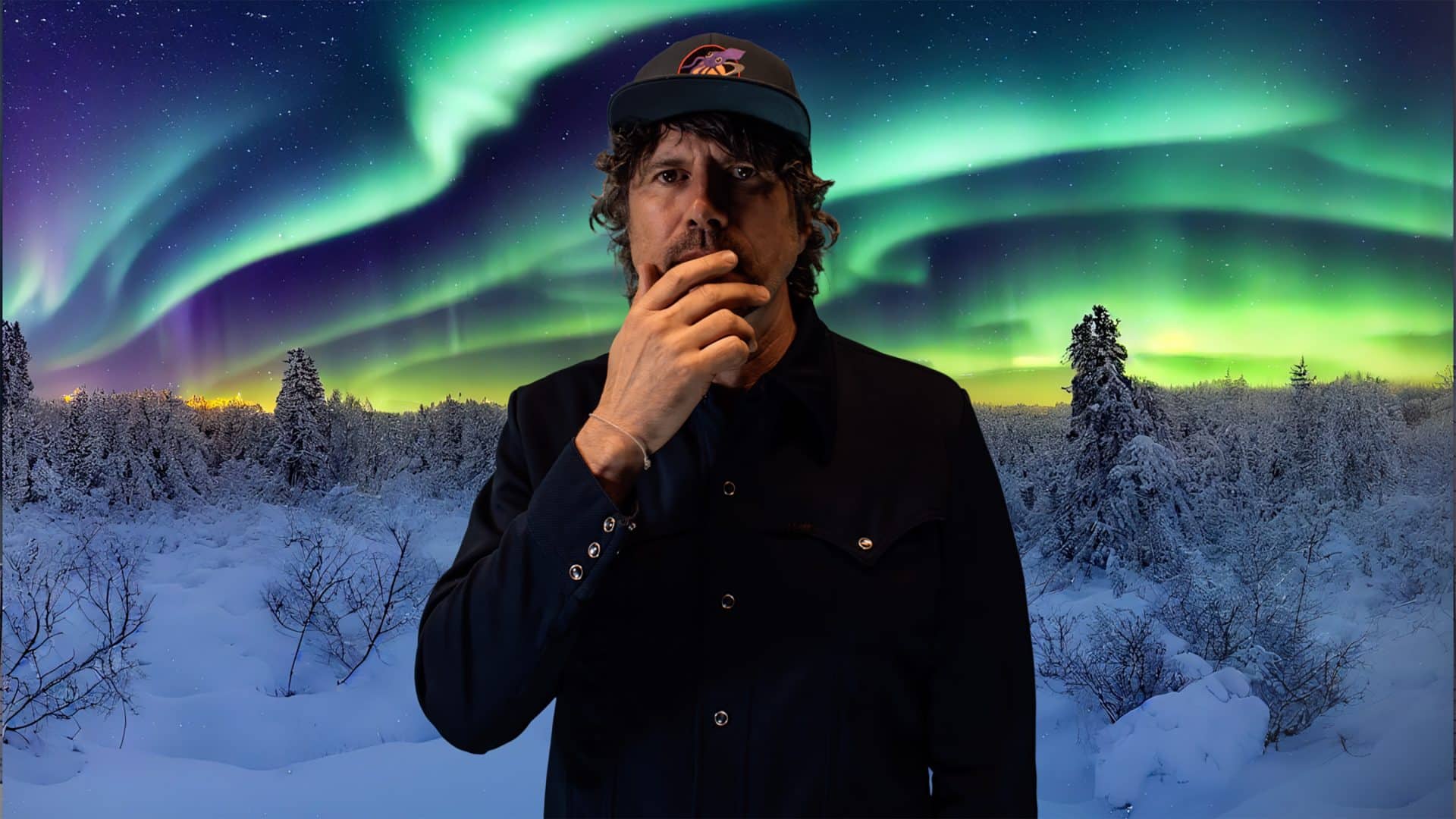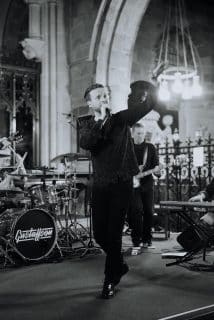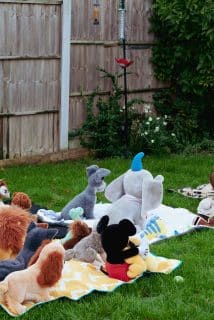Has Gruff Rhys just made his best album?
Culture
Sadness Sets Me Free is Gruff Rhys' 25th album, and it happens to be one of his very best. He speaks to us about finding hope in sad songs.
Gruff Rhys new album ‘Sadness Sets Me Free’ is his 25th , encompassing his career as frontman for Super Furry Animals, the Mercury-nominated Neon Neon (still can’t believe he did an album about DeLoreans…that alone is Nobel Peace territory), and as a solo artist. This new solo record is right up there with his very best, and will delight anyone who’s intersected with his music at any of those points in the past. It has all his customary musical adventure, pop flair, surrealist instincts, sensitivity without the self-pitying, great titles (‘They Sold My Home To Build A Skyscraper’), lyrics that veer from hilarious to profoundly touching and sometimes are both at the same time (“You know I’m as reliable/as asking a seal to deliver the post” he sings on ‘Bad Friend’). In a world of highly predictable algorithmic music, Gruff’s world is impossible to predict, you really do just strap in and go for a ride. Who else on the planet would start a song with the line, “I said, ‘I’m a barista’, she heard, ‘Barrister’.”? No-one. The title track sets a more melancholy tone, but the love this guy has for his work never lets things drift into moroseness, and indeed the ‘sadness’ is about the world that he then solves himself by showing how music can be a salvation on the abundant likes of ‘Celestial Candyfloss’ and spine-tingling closing track ‘I’ll Keep Singing’. Basically, this is an album to play to death all year.
We managed to speak to Gruff to find out more about the album…
What did you have in mind when you started the album?
I had a few song around and for some reason I liked the title Sadness Sets Me Free. It felt like I could hang a lot of other songs round that title. There was no concept really except they were songs of complaint or apology. They seemed to be related somehow.
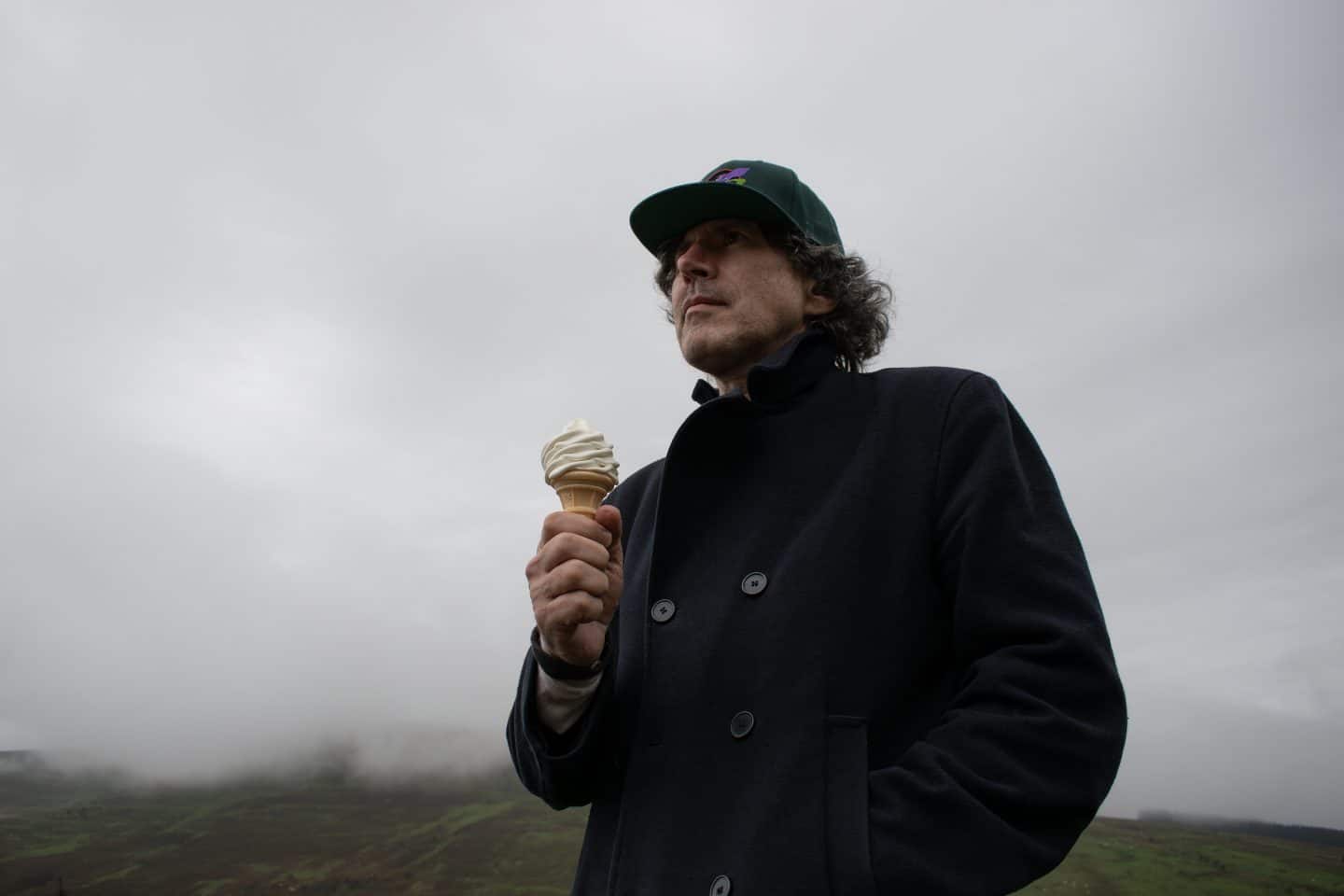
Were you in a complaining mood?
Generally I’m an optimist and into music’s potential as a bringer of hope. That has power to uplift people and bring them together. But I felt around the time of the recording it was a sombre time. The pandemic was just over, there was war in Ukraine and Yemen, and elsewhere. The mood felt appropriate and I suppose it still does. With the hyper violence going on.
I suppose related to that was we were coming out of the lockdown period. The run up to this recording was a tour still affected by the pandemic. The tour was supposed to start in Germany and go through other countries but restrictions meant we couldn’t do them. As a pandemic album, it’s deeply scarred.
It is sad but also joyful and did that come from being back in the same room with people?
Yeah that was the appeal of the recording technique for this album. It was very old fashioned. Getting the songs into a good shape on the road before going into the studio and setting up in one room and playing together, and recording it very simply in a short amount of time. That was very joyful after a very strange couple of years of recording during Covid restracitions when we’d have to be isolated from other musicians. It was great working together all day, and eating together.
Sugar levels were high. We were recording in a French studio because the engineer, Maxime Kozinetz, was French. I’d worked him previously on an album with [Tuareg band] Imarhan. He’s great at recording live music and making it sound powerful and intimate. He recommend the studio but its was too expensive for my budget. But they got the price right down for me.
But then there was a food bill as part of it. I was like, ‘we don’t need food.’ The studio owners said the chef has been her 30 years, its non geonitonable . it comes with food or you don’t come. At the time it was frustrating because it was costing so much of the album budget. But once we were there we realised there was no other way of doing it. Every time we had food a gardener would arrive from somewhere, some engineers we’d never met would turn up, it was great very communal and the food was very healthy which kept us buoyant. We were able to do so much more I think because we were in a really good mood because of the food.
If you were starving it would have been a different-sounding record.
Yeah a lot of echo and dissonance.
What are the key tracks for you?
There’s variations. There’s a song called ‘Celestial Candyfloss’ which we practiced a lot on the road and got the arrangement spot on. It had a very definite structure and idea of how it should turn out. And then other tracks like ‘Cover Up the Cover Up’ where I was trying to encourage everybody to jam and interplay with each other and try to find a groove. They were the two extremes. There’s very straightforward pop songs and there’s more atmospheric songs that are more experimental.
Are you still learning things in the studio?
Yeah, when I played on those songs by Imarhan and Maxine was the engineer, I loved how he would record live takes at very low volume with acoustic instruments, and he was making them sound very powerful. We took the same approach on this album. We played on acoustic instruments, quietly for the most part, with a stand-up double bass and a string quartet. Maxine was able to make them sound powerful. That was a learning experience. I was trying to sing more quietly on some songs too. I‘m sure I’ll do that on future records.
I suppose it’s partly why I wanted to try a different studio or different circumstances. To try and not make the same record over and over again.
You’ve done 25 records, do you find your songwriting has changed over the years?
Probably not enough! I’m still doing very simple melodic songs that rhyme. My hope is that I am heading somewhere with it. I’m working my way there. To maybe reach a point where I can make really challenging music that’s still listenable. That’s where I went to get to.
Is that your motivation?
I think that’s my motivation yeah. But I’m happy to leave a trail of attempts rather than spend 15 years on one album by myself.
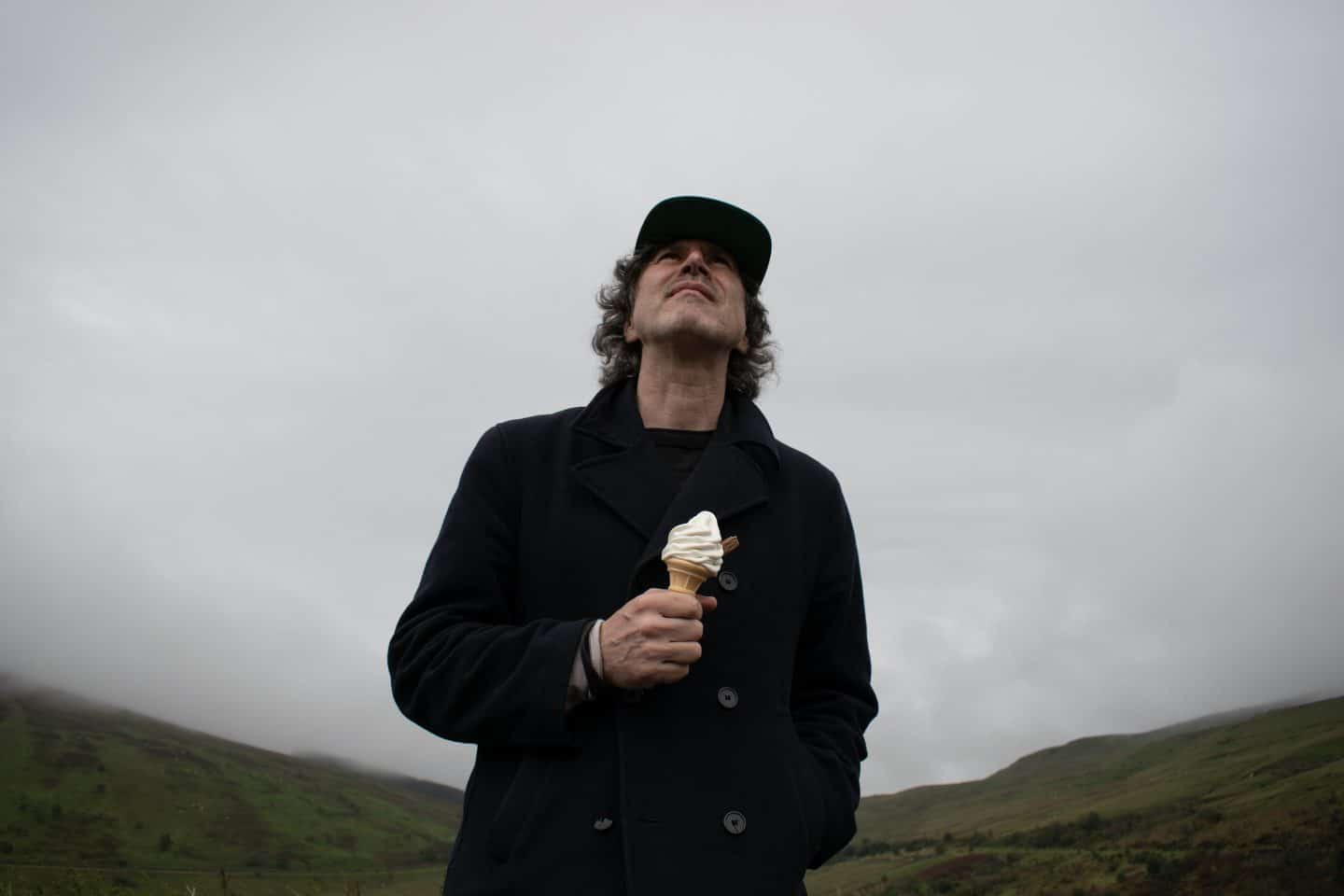
What was the first song you ever wrote?
My brother had a tape recorder and I recorded a song in the welsh language that was about a train driver that was getting old. When I was about five.
Have you managed to meet your heroes over the years?
I’ve been lucky enough to meet some incredible people like Neil Young and Lou Reed, Brian Wilson, Paul McCartney. It’s mind boggling to me really.
How was Lou Reed? Scary?
Amazing. Incredible. We et him in 1996 in a festival in Belgium. It was on a beach in Zeebrugge. There was a free bar backstage and we played first and went straight to the bar afterwards. And then after a couple of hours, Lou Reed walked into the bar. He’d had a curly mullet for many years, and he walked in with really short hair, he’d shaved it all off. I was with the other members of the Super Furry Animals and we just started singing, ‘Where’s your mullet gone? Where’s your mull-et gone?’ And he just responded to it really well. He was laughing, totally how you wouldn’t expect him to be. I had a photo with him, and h was beaming. It was an insane situation. We were really happy to meet him and he was cool and laughing. He was really nice!
How do you look after your mental health?
We’re living in extremely sobering times and I’ve had to adapt to to things over the last few years like everybody else. I’ve got kids so that’s my priority, trying to give them a stable life, but in turn that gives me stability as well. And when I am doing music I really appreciate it, its not something I take for granted. I’ve tried to adapt. I used to go on a continuous tour for 6 weeks and you tend to lose the plot after three weeks. So I don’t do that really anymore, I just make sure I’m home a lot and keep in touch with what’s real.
What do you hope people get from the album?
I think it starts quite structured then goes into a space where people can lose themselves in it and come out the other end with a spring in their step, with some sense of hope after being in this world for 40 minutes or so.
Is the final track, ‘I’ll Keep Singing’, a bit of a mantra for you?
Yeah it’s a bit of an absurd mantra. Sadness sets me free, sung optimistically. Giving myself the freedom to sing sad songs and moan and complain a little and then hopefully walk away empowered by them.
Trending

Join The Book of Man
Sign up to our daily newsletters to join the frontline of the revolution in masculinity.




